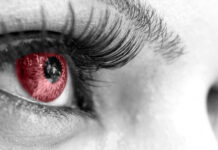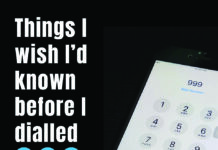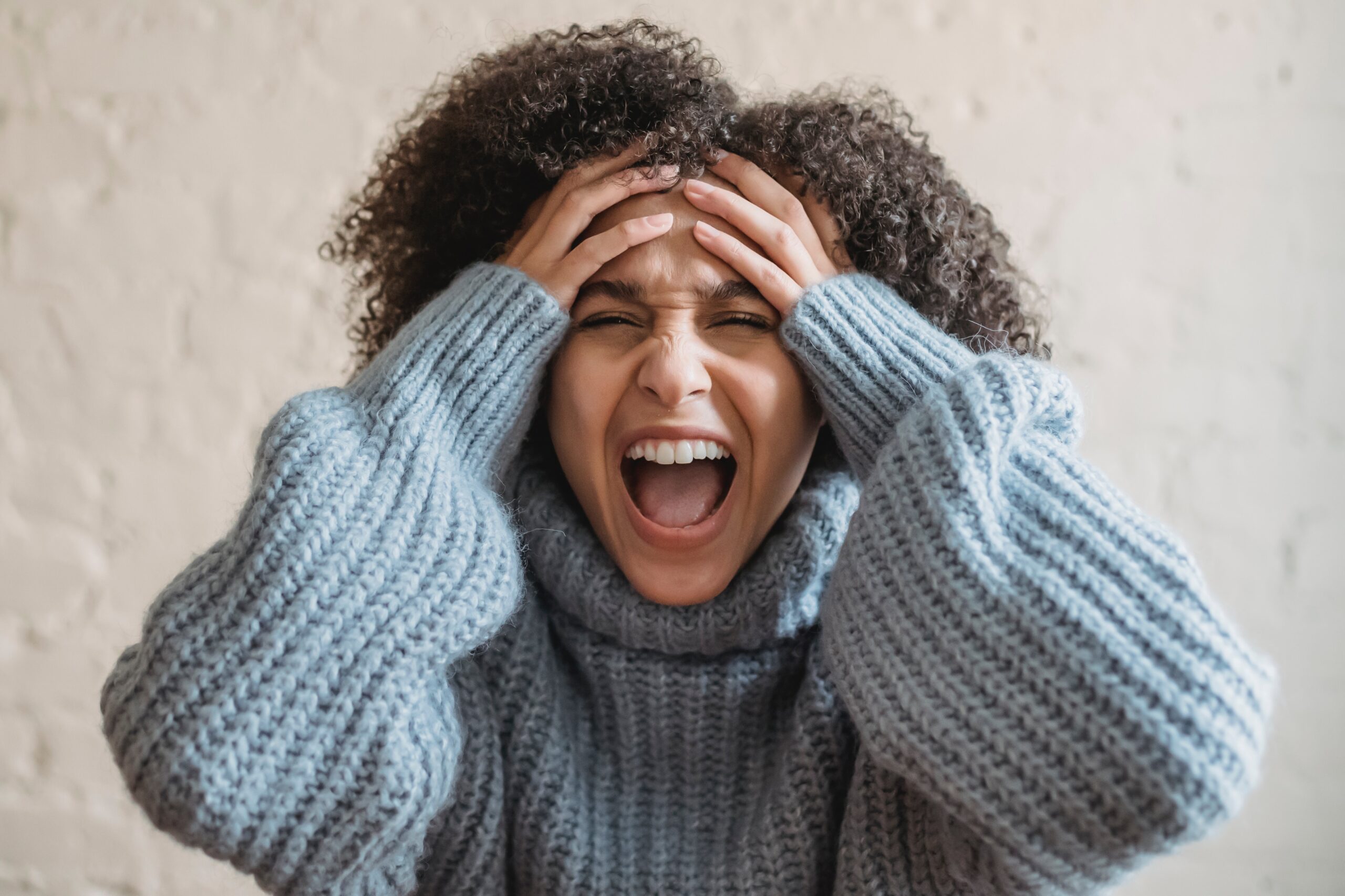Hormonal as hell and hurtling towards menopause?
That was me seven years ago and I’ve been on a mission to demystify what the hell has been happening with my hormones ever since.
Rewind to the end of 2014 and I had a bit of a wobble. I refer to it as a wobble because that sounds kinder to myself than saying a breakdown. I don’t like the word breakdown because it infers weakness, and that label doesn’t sit well with me. Probably because in many aspects of my life I was (and still am to a degree) a total control freak. Which is a blessing and a curse, as I am certain any fellow control freaks out there would be able to testify. I contemplated talking about the wobble and what followed afterwards for a while.
But at some point between the wobble and the beginning of last year, I also became a tireless procrastinator..
Descriptive: “Someone who spends a disproportionate amount of time and energy writing endless lists of shit to get done and researching how to get the said shit done online, without hardly ever actually getting the shit done”
Hence this is a real achievement as I attempt to reclaim my ability to get my shit done and prove to myself that midlife and perimenopause brain fog can jog on.
There, I said the PM word. That is the reason that brought me here. Although no one told me that at the time, almost seven years ago when I first had a wobble. And truthfully although it was a pretty significant wobble, there had been signs way before that, but they had been brushed off by my GP and I didn’t know any better.
Maybe I need to rewind and share a bit more about the wobble.
I had been hyperventilating in an uncontrollable way (what I now know to be a panic attack) accompanied by some very dark and unpleasant thoughts seemingly out of nowhere on a train four days before Christmas and two days before my period started.
When I returned home after the festivities were done and sat sobbing hysterically in front of my GP on NYE 2014 at no point did she think it might be relevant to ask at what point was I at in my cycle. Even now I still struggle to compute the rationale behind that simply because it might seem such a small and insignificant “thing” but actually to a lot of women, it isn’t. It’s completely relevant.
So when instead (and despite the fact that over the five years prior I had already visited on numerous occasions questioning my frequent dips in mood and overly emotional state and been fobbed off with antidepressants that I never actually took because deep down I just knew that I wasn’t “depressed”) she simply looked at me like I was making a massive fuss over nothing and told me that perhaps it was time I took the tablets.
I cashed the script and took the tablets.
I was seriously frightened. Frightened I was losing my mind and actually going mad because I hadn’t asked to think these horrific thoughts and images that were whipping my brain into a frenzy. I AM an intelligent woman who likes to be in control. I am a fixer and yet it felt like I was losing my grip and didn’t seem to be able to rationalise any of it. Every time I caught myself looking at one of my children I was filled with this enormous and overwhelming sense of fear that something really awful was actually going to happen to them. My brain was telling me to lap it up every time I caught sight of them engrossed in a book, or some sort of activity because at the same time, very cruelly, it was telling me in no uncertain terms that it would absolutely be the last time.
Horrific. Hard. And possibly the saddest and most confusing feelings I have ever had to experience. And because most of the time my children were right there in front of me when these terrifying thoughts and feelings arose, I was trying my absolute hardest not to let them see. Attempting to squash your own panic attack whilst trying really hard not to let on that you are in the middle of one is nigh on impossible and only makes it ten times worse.
Over the following years, I experienced many similar unwelcome episodes of panic, usually on a plane or in the car and completely out of context. A couple of years ago I watched a programme
on post-partum psychosis and it only solidified for me what a delicate dance our hormones are doing on a daily basis. When the balance of these is out of kilter the side effects can be dramatic, disturbing and at their worst, life-threatening.
I turned 40 early that January and I just felt desperately sad. I was miserable, drained and despondent. And I felt like a shell of the person that I knew I really was somewhere underneath it all. I was very skilled at telling everyone I was fine when actually nothing was further from the truth. I was wired all night and not sleeping, and the Citalopram seemed to have numbed me in a way that was very alien to me and I really didn’t like it.
I don’t want to make it sound like I suddenly had an epiphany and wrote a 10 point action plan because that certainly wasn’t the case and I had neither the energy nor the inclination. I still felt empty and despairing but I also had a real sense that somewhere underneath it all I wanted to feel well and like myself again, and in order to do that I knew that tablets were not going to be the way forward for me.
In a nutshell that was the worst of my wobble. At one point I actually did believe I was losing my mind and I can’t lie – that scared the shit out of me. Some of the things that have helped me massively to move forwards since then include Homeopathy and Yoga, and considering my approach to exercise, and my diet. I now try my best to moderate my consumption of Google, alcohol, sugar, meat, and caffeine.
I culled a lot of the “fun” stuff following the wobble but there are lots of things that I discovered that have helped me to feel better although I won’t lie – there have also been many times where having to be this disciplined has left me feeling, frankly, boring AF.
It wasn’t an easy journey in the beginning and I initially developed a LOT of health anxieties – the legacy of which I still live with to this day. I also want to be very clear that I am absolutely not saying that drugs such as antidepressants and HRT don’t have a place and aren’t helpful for some people. They absolutely are and I am truly respectful of that.
They just weren’t for me, and I found that the more I talked to female friends and had conversations with work colleagues, the more annoyed I became at the fact that many GP’s just didn’t seem to want or have the time to educate female patients about perimenopause, and shockingly some of them didn’t even recognise that it exists.
I look back now and I am very much thankful for the wobble. I have learned so much and know myself so much better as a result. Finding an amazing homoeopath helped me to understand because she didn’t just prescribe me a remedy, she took the time to listen and to ask questions which sensitively guided me towards a better understanding of my body and the female endocrine system overall. I don’t know about you but I didn’t cover this at all in GCSE Science bar a cursory lesson on periods, so in turn, this helped me massively to get some perspective on why I had the wobble.
I struggled hugely with anxiety for a time, and I know now that it is always likely to be something that I will have to manage rather than cure. I felt angry about that for a very long time because I still feel now as if someone just decided one day to crack me over the head with an Anxiety Stick. I had never been a worrier about my own mortality or about life circumstances up until that point. But I don’t give the anxiety as much power these days and I recognise that my moods are more often than not holding hands with my hormones.
If you think that you might have experienced a wobble please know that it’s actually way more common than you might think. Take heart in the fact that there are lots that can be done, and it is 100% possible to feel better – whether you eventually decide on medication or not.
And if you are struggling to make some sense of how you are feeling and you think that perimenopause might be at play I would encourage you to educate yourself using evidence-based information, seek professional help if you need to, and come hang out with me on Instagram – at the very least you will know that you are not alone! x
By Charlotte Ellison
www.moodswingsandotherthings.co.uk
Perimenopause Stats:
- In the UK the average age to start menopause is 51 (NHS). But around one in 100 women experience menopause before 40 years of age. In a few exceptional cases, women may become menopausal in their 30s, or even younger.
- It’s estimated that there are around 13 million women who are currently peri or menopausal in the UK (Wellbeing of Women) – that’s equal to one-third of the entire UK female population.
- Peri-menopause can occur for women from their mid-30s (or earlier) and is the period leading up to menopause. It is the beginning of a loss of oestrogen and progesterone. Women experience peri-menopause for several years.
Once menstruation has ceased for 12 continuous months a woman is deemed to have hit menopause – and is then considered to be post-menopausal – and the next stage begins with a slightly different label. This is the part when the majority of the oestrogen has almost certainly ‘left the building’ and there are physical effects due to the continuation of the effects of the loss of those hormones.
Resource:
www.local.gov.uk











